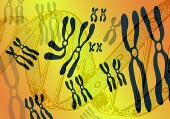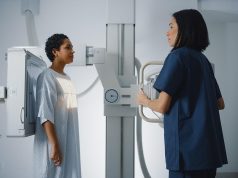Testing for mutations other than BRCA1/2 in HBOC may change clinical management for women, families
THURSDAY, Aug. 13, 2015 (HealthDay News) — Multigene testing for hereditary breast and/or ovarian cancer (HBOC) identifies more mutations that are likely to change clinical management, according to a study published online Aug. 13 in JAMA Oncology.
Andrea Desmond, from the Massachusetts General Hospital Cancer Center in Boston, and colleagues conducted an observational study of patients from three large academic medical centers. A total of 1,406 individuals who were appropriate candidates for HBOC evaluation and who lacked BRCA1/2 mutations were enrolled prospectively.
The researchers found that 40 BRCA1/2-negative patients (3.8 percent) harbored deleterious mutations, most often in moderate-risk breast and ovarian cancer genes (CHEK2, ATM, and PALB2) and Lynch syndrome genes. Most of the mutations (92 percent) among these and an additional 23 mutation-positive individuals enrolled from the clinic were consistent with the spectrum of cancer(s) observed in the patient or family, indicating clinical significance. For most (52 percent) of these 63 mutation-positive patients, additional disease-specific screening and/or prevention measures beyond those based on personal and family history alone would be considered. Based on potential management changes for mutation-positive relatives, additional familial testing would also be considered for those with first-degree relatives (42 of 58).
“In a clinically representative cohort, multigene panel testing for HBOC risk assessment yielded findings likely to change clinical management for substantially more patients than does BRCA1/2 testing alone,” the authors write.
One author disclosed financial ties to Myriad Genetics. Several authors are employees of Invitae Corporation, a testing laboratory that furnished the 29-gene panel test results used in the study.
Copyright © 2015 HealthDay. All rights reserved.








